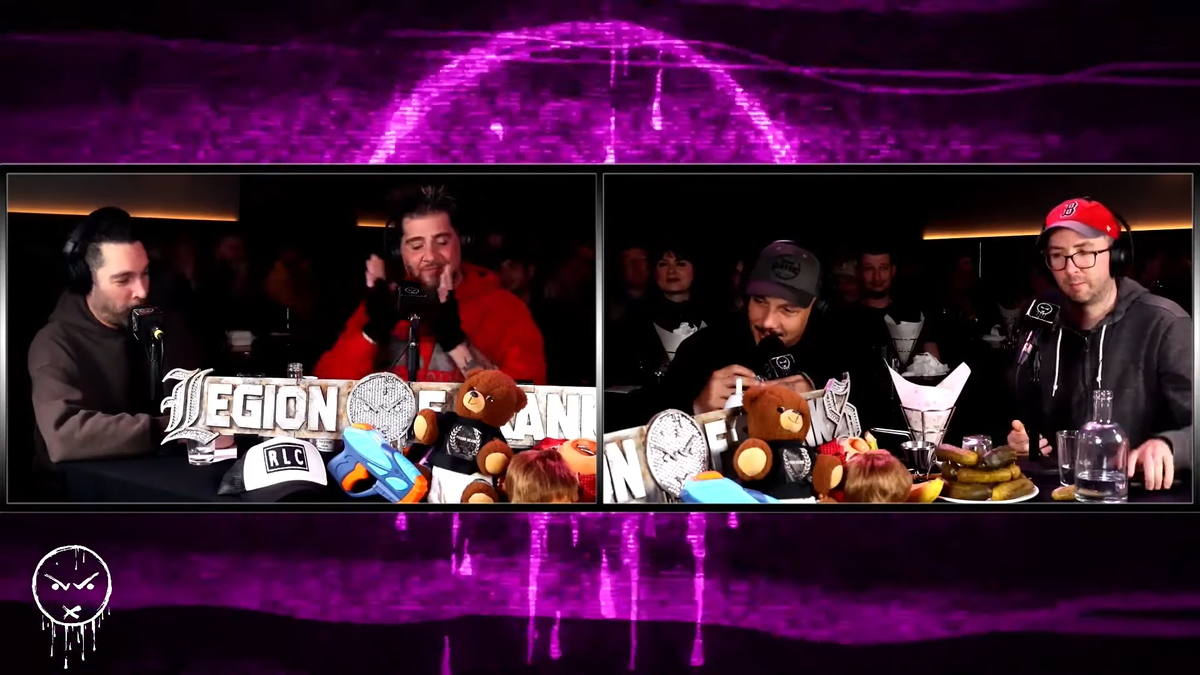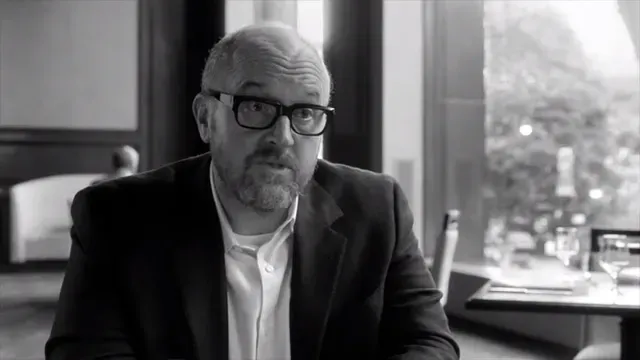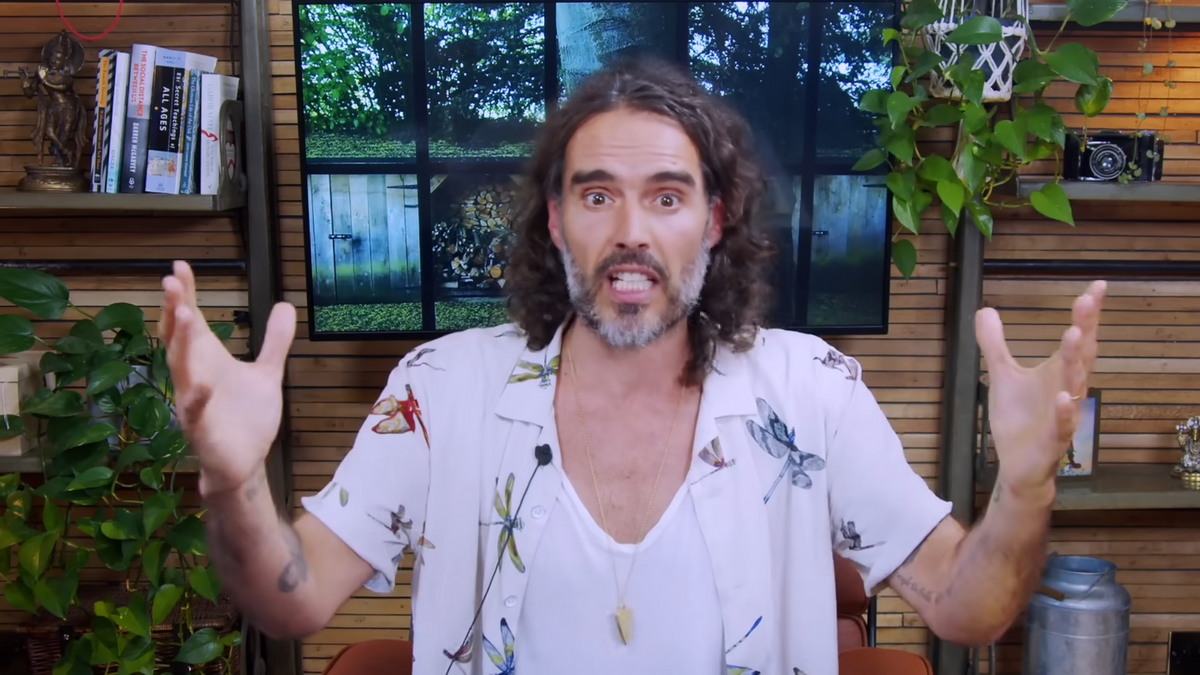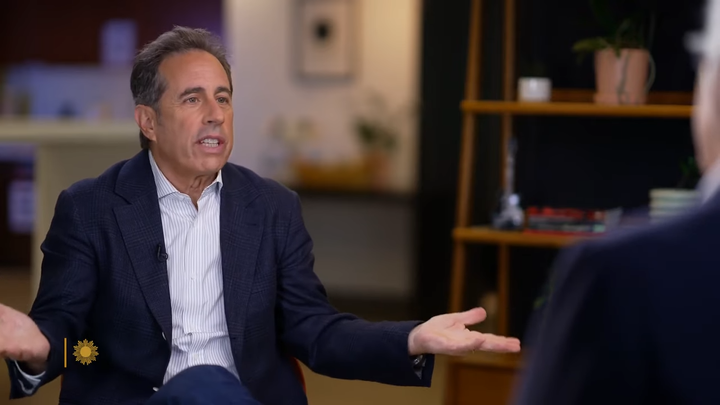Why MeToo Mattered
On the comedy group that defended child rape live from The Stand last week.

Last month Max aired Quiet on Set, a docuseries illuminating the disturbing culture of abuse that dominated a small empire of Nickelodeon shows created and run by Dan Schneider in the ‘90s and 2000s. Building on reporting by Insider, the series portrays Schneider as a consummate misogynist who subjected his employees—many of them children—to inappropriate jokes and behavior. He allegedly demanded massages from female employees, made degrading comments, placed his child stars in sexually suggestive scenes, illegally required a pair of female writers to share a salary, showed people pornography on his work computer, and employed multiple child sex offenders, including Brian Peck, a dialogue coach who groomed and sexually abused Drake & Josh star Drake Bell.
“The abuse was extensive and it got pretty brutal,” Bell said in an interview. “Why don't you think of the worst stuff that someone could do to somebody as a sexual assault, and that will answer your question. It was not a one-time thing.”
Schneider, whose penchant for placing child actors in borderline pornographic scenes—and even taking photos of their feet—has long invited rumors of his own sexual misconduct, departed Nickelodeon in 2018 after an internal investigation found that he could be verbally abusive towards his employees. In a recorded interview he published on YouTube after Quiet on Set aired, he apologized for seeking massages from his employees and for his hostile management style.
“The main thing that I would change is how I treat people," he said, according to Variety. “I could be cocky and definitely over-ambitious, and sometimes just straight-up rude and obnoxious. I’m so sorry that I ever was. When I watch the show, I can see the hurt in some people’s eyes, and it made me feel awful and regretful and sorry.”
Addressing criticism of his shows’ sexual content, Schneider said he’d be willing to cut them from reruns, though he stressed that audiences found them funny at the time. "Every one of those jokes was written for a kid audience, because kids thought they were funny," he argued. "Now we have some adults looking back at them 20 years later through their lens, and they’re looking at them and they’re saying ‘You know, I don’t think that’s appropriate for a kids show.’ I have no problem with that. If that’s how anyone feels, let’s cut those jokes out of the show, just like I would have done 20 years ago.”
As Variety noted, this statement contrasts starkly with the comments offered a day earlier by one of Schneider’s own representatives—comments that helpfully point to the systemic nature of his abuses.
“Everything that happened on the shows Dan ran was carefully scrutinized by dozens of involved adults, and approved by the network,” his representative said. “If there was an actual problem with the scenes that some people, now years later are ‘sexualizing,’ they would be taken down, but they are not, they are aired constantly all over the world today still, enjoyed by both kids and parents.”
Last week the comedy trio Legion of Skanks gathered at The Stand, a club in Manhattan, to record their eponymous podcast. The group, consisting of Luis Gomez, Jay Oakerson, and Dave Smith, was joined by Joe List, the standup comedian who opens for Louis CK, the popular sexual predator. Early in the recording, Gomez declares that they will use this episode to “celebrate the leadership stylings of Dan Schneider,” who they believe to have been vindicated by Quiet on Set: despite persistent whispers that Schneider himself was a pedophile, the series reveals that he was actually just a mean boss who asked for massages.
“It kind of reminded me of the Louie thing,” Gomez says. “The rumor about Louie was that he held the door closed and he forced these girls to touch his dick. And then when you found out that Louie just pulled his dick out, you’re like, okay, that actually wasn’t that bad.”
“[He] asked, and when they said yes, proceeded to do it,” Oakerson agrees. “On paper, the man did literally nothing wrong.”
“When I was under the impression that he held the door shut, I didn't care,” Smith adds. “So you're telling me now I'm supposed to care?”
"The fact that we found out that Schneider wasn't that bad, it genuinely is making me happy. I get to enjoy these shows again with my son."
They bring this same dismissive attitude to Schneider’s reported offenses, spending the next hour inviting their producers to reenact, on camera, several of the incidents described in Quiet on Set. Throughout it all, the comedians speak quite highly of Schneider. “The fact that we found out that Schneider wasn't that bad, it genuinely is making me happy,” Gomez says. “I get to enjoy these shows again with my son.”
The sexually suggestive scenes don’t concern him, he argues, because they’re basically negligible. “You're talking about thousands and thousands of hours of content. If you were to go over any cartoon, I could show—we do that all the time. Like, Bugs Bunny cartoons where they're sexualizing characters or the racist cartoon moments. If you're just looking for those moments, you're gonna find them.” (If Gomez understands the difference between cartoon characters and human children, he does not say so.)
The group is similarly unfazed by the incidents of child sexual assault described in Quiet on Set, which they suggest may be the victims’ fault. “He didn't tell him to stop,” Gomez says of Drake Bell’s grooming and abuse by Brian Peck, who was found guilty of 11 counts of child sexual abuse and served a 16-month prison sentence. “He's like, ‘I just froze. And then I kept on going to his house and getting fucked by him every night for two years.’ It sounds like he was in a gay relationship.”
“That’s what I mean,” Oakerson responds. “A lot of these things in this were like, you could have done something. You could have done a thing.”
Smith, a leading voice in the Libertarian Party’s far-right Mises Caucus, goes so far as to question the very idea that children cannot consent to sex. “I'm not saying this is right, I'm just saying I remember when I was 16 and a couple of the 16-year-old girls in our crew would fuck a 25-year-old every now and then,” he says. “And the response would be universal: ‘You whore.’ You know, ‘You're being a whore, going and fucking a 25-year-old. You know what you're doing.’ Now, I guess by 2024 standards, that was a child being raped.” (Smith is 40.)
"I'm just saying, when you bent over and pretended to get butt-fucked while you were pitching your thing—seems like if you hated what was happening right there, that you could have fucking just said, flat-out, 'No.'"
A great deal of Quiet on Set is concerned with Schneider’s institutional power as the creator of numerous Nickelodeon cash cows. His employees (and in the case of his child stars, their parents) were highly conscious of his influence over their careers. To tell him “no,” they knew, was to jeopardize their own livelihoods. This dynamic is lost on the Legion of Skanks, who seem unable to grasp the finer nuances of consent.
“This girl complains about getting asked to do that as a writer,” Oakerson says of Schneider forcing Chrissy Stratton to simulate sex acts in The Amanda Show's writers room. “But here’s the thing: she did it. She did the thing… And then she did it in a room that—I have a feeling it was brought up in a very, like with a room full of writers. If this was something that was so crazy for him to say, she could have ended his career that day.”
“I 100% agree,” Gomez replies. “But her perspective would be that she froze and didn't know what else to do and didn't know how to say ‘No, you can’t do that.’”
“You can’t do that,” Oakerson insists, referring to Stratton. “I'm not victim-blaming. Maybe they were super mean to those chicks. I'm just saying, when you bent over and pretended to get butt-fucked while you were pitching your thing—seems like if you hated what was happening right there, that you could have fucking just said, flat-out, ‘No.’ And like, who's gonna go, ‘What a dumb bitch.”
As Quiet on Set covers, Stratton’s fellow writer Julie Klingen filed a lawsuit against The Amanda Show’s production company, alleging gender discrimination, harassment, and a hostile work environment; Stratton wrote a letter supporting her allegations. The claim settled.
You may know Legion of Skanks as the comedy group that featured neo-Nazi pedophilia defender Milo Yiannopolous on its podcast in 2019, leading to protests against the Creek and the Cave, the then-Long Island venue where the trio used to record. (Yiannopolous returned to the podcast in 2021.) Or you may remember it as the group that a few months later booked Louis CK for a surprise performance at its comedy festival, Skankfest, leading to an apology by the Brooklyn Bazaar. Perhaps you remember it as the group that recorded live inside The Stand in October 2020, in violation of New York’s health guidelines, or the group that booked antisemitic alt-right provocateur Sam Hyde at Skankfest just last year.
However you know Legion of Skanks, you should also know this: it is not some fringe group. It has deep ties throughout the comedy world, having featured not only household names but also nearly everybody else in contemporary standup. An incomplete sampling of comics who have appeared on the podcast and/or Skankfest since 2019 includes Dave Attell, Nate Bargatze, Roseanne Barr, Tone Bell, Michael Che, Whitney Cummings, Tim Dillon, Chris Distefano, Jared Freid, Derek Gaines, Shane Gillis, Tony Hinchcliffe, Jordan Jensen, Eleanor Kerrigan, Bert Kreischer, Matteo Lane, Annie Lederman, Ali Macofsky, Matt McCusker, TJ Miller, Sam Morril, Nick Mullen, Mark Normand, Jim Norton, Eddie Pepitone, Steve Rannazzisi, Mike Recine, Ben Roy, Andrew Santino, Yamaneika Saunders, Andrew Schulz, Ari Shaffir, Pauly Shore, Daniel Simonsen, Maddy Smith, Dan Soder, Doug Stanhope, Sam Tallent, Nick Vatterott, Rich Vos, Jeremiah Watkins, Eagle Witt, and Rachel Wolfson.
Behold the downstream effects of MeToo’s failure: a group of popular comedians so radicalized against the basic principles of consent and power as to defend the act of child rape, and so emboldened by the impunity of high-profile abusers as to celebrate one of them by reenacting his abuses—on camera, in a major New York City comedy club.
What we are witnessing more specifically is the result of the comedy industry’s failure to expel Louis CK, whose abuses illustrate the precise aspects of consent, power, and workplace sexual harassment that Gomez, Oakerson, Smith, and List fail to understand. Remember that CK spent years denying the rumors about him, copped to everything in the New York Times report shortly after it published, never apologized or made restitution, and later mocked his victims in a standup special where he reiterated that they said “yes” when asked if he could masturbate in front of them. (As I like to ask people satisfied by his statements: was there anything else in the Times exposé?) Of course, it is never appropriate to ask your coworkers if you can masturbate in front of them at work. This is the crux of it all, the very definition of sexual harassment. CK so successfully manipulated the narrative that this simple fact has never registered in the popular understanding of his abuses. As a result, vast swaths of the comedy industry and the general public believe simultaneously that he did nothing wrong and that he’s earned forgiveness.

This is why MeToo mattered. People by and large do not understand how sexual harassment works; or perhaps in many cases they do, and they are themselves sexual harassers. No mechanism exists to address either problem in comedy, let alone both. Comedy workers are almost universally freelancers. They do not undertake sexual harassment training, they do not have a human resources department, and the institutions to which they might conceivably report harassment have no obligation or incentive to do anything about it. Under these conditions, it is self-evidently practical to make an example of serial harassers. There is educational value in demonstrating the many forms that harassment can actually take; there is deterrent value in showing harassers that they cannot harm people and go on living the lives they wish to live; and most importantly, there’s a clear public safety value in removing harassers from the environments where they do harm.
MeToo may have been an imperfect means of achieving these goals, but it was also, briefly, the only means that existed, and its failure has not given way to anything better. What has emerged instead is a growing consensus that MeToo itself was the problem.

It can be tempting to view the internecine politics of live comedy scenes as marginal concerns, irrelevant to the broader industry and culture. The comedians in Legion of Skanks aren’t household names, they’re not on TV, the crowd they associate with is almost entirely people you’ve never heard of, their problems are localized to a few clubs in one or two cities: who cares?
I believe this is the wrong attitude, akin to diminishing the experiences of journeyman actors because they’re not Brad Pitt. The truth is that most comedians are people you’ve never heard of, working at clubs like The Stand with men like Luis Gomez, Jay Oakerson, and Dave Smith. Their work is as precarious as it is for anyone in Hollywood proper; the power differentials between those who have platforms and those who need them are just as real. In this world obscurity is as much an asset to potential abusers as fame would be. Nobody’s paying attention to them, nobody’s in charge, nobody’s making any money, social currency is everything, and the only rule is that rules are for everyone else.
Louis CK was forged here. So were Chris D’Elia, Jeff Ross, Bryan Callen, and TJ Miller. So were countless other people you’ve never heard of, whose victims you’ll never hear of either. The realm of obscurity is not marginal; it’s where almost everything happens.
Consider, then, the looming endpoint of comedy’s inability to enforce any baseline standards of conduct: a major American art form slowly but surely coalescing around the idea that workplace sexual harassment is fine, even good; that child rape isn’t all that bad; that no form of bigotry cannot be rationalized away as art or a matter of opinion; and that there is no harm in associating with people who not only believe these things explicitly, but whose fanbases take great pleasure in punishing anyone who disagrees.
The question isn't what the future might hold; it holds the past. The question is just how far back they'll drag us.

